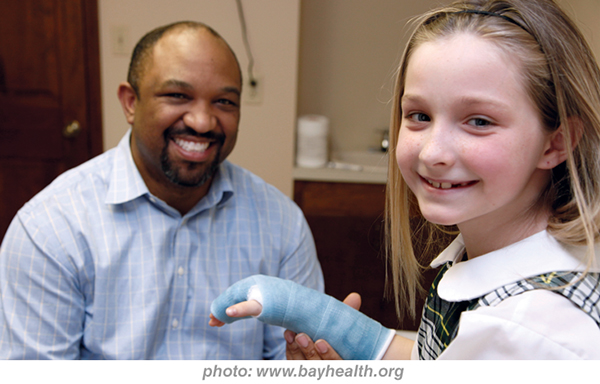
What does a Pediatric Orthopaedic Surgeon do?
Pediatric orthopaedic surgeons specialize in diagnosing and treating musculoskeletal and chronic neurological disorders in children. This includes correcting problems with muscles, tendons, ligaments, bones, joints, and other connective tissues, and doing so while these body parts are still growing and have not yet fully developed.
What training and education do Pediatric Orthopaedic Surgeons have?
All orthopaedic surgeons must be accredited medical school graduates and complete a 5-year residency program at an accredited institution to become board certified in the United States. Because of the differences between the bodies of children and adults, pediatric orthopedic surgeons often undergo several additional years of subspecialty training in the management of bone and joint problems in children.
How do I know if my child should see a Pediatric Orthopaedic Surgeon?
Common problems that pediatric orthopaedic surgeons can help with include limping or trouble walking, limb and spine anomalies (such as club foot, scoliosis, limb length differences, and congenital hand and foot disorders), gait abnormalities, broken and fractured bones, and bone or joint infections and tumors. More complicated problems like developmental delay and skeletal dysplasias typically require the attention of a broader pool of medical and surgical expertise.
Pediatric medicine has a well-known motto; “Children are not just small adults.” Their anatomies are different from those of adults. They’re still growing and developing, so their responses to treatments for injuries, disorders, and diseases are very different. They also can’t always effectively communicate what’s wrong and where it hurts. That’s why in order to obtain the best long-term prognosis and outcome, they need pediatric-specific diagnoses, therapies, and treatment techniques.

